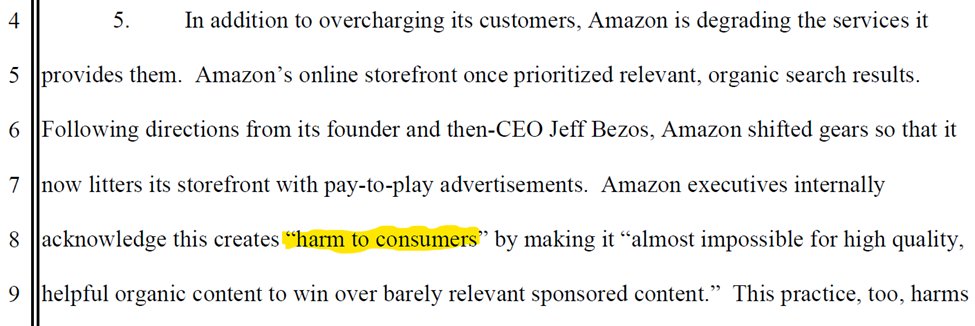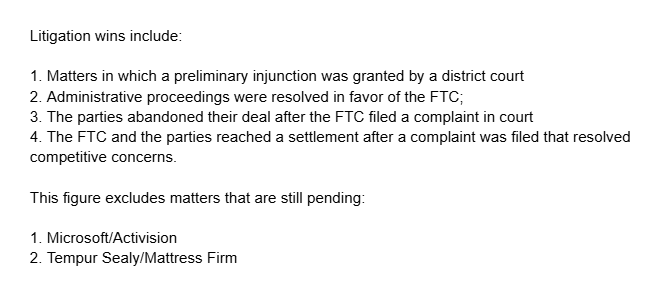🧵Thanks to FTC staff, previously redacted info on why Amazon is an illegal monopolist is now out! Here’s some of what’s new in a big thread 👇🏻 1/15
Amazon pursues a pay-to-play scheme forcing sellers to buy ads. Worse, many of these ads are junk ads that aren’t relevant to what users search for. Jeff Bezos and co. call these Junk Ads “defects,” and sellers pay big bucks for them. 2/15 

These ads do two things. First, they make the customer experience much worse, which is why you might search for “water bottles” and end up with offers to buy “buck urine” 🤢 3/15 

They know this harms consumers, but they don’t care because maximizing advertising profit at all costs “has effectively become ‘law’ even if it has many flaws” according to a senior Amazon executive 4/15 

The second thing all of Amazon’s ads do is raise prices for consumers. Sellers are forking over big money in a pay-to-play scheme. That cost goes directly to you according to Amazon’ own executives. 5/15 

Amazon’s own economists even pointed out that by flooding search results with paid ads, Amazon steers shoppers towards higher-priced products and makes comparison shopping harder on the platform 6/15 

By the way, you as you can see above Amazon is still trying to keep some of the material in the complaint out of the public eye... 7/15
Amazon is really excited about how much money these ads are earning them by the way. In their Q3 report last week they said that revenue from ads grew 25%, which is faster than AWS 8/15
axios.com/2023/04/28/ama…
axios.com/2023/04/28/ama…
Amazon harmed price competition in other ways too. Former Amazon exec Jeff Wilke came up with the idea for an algorithm to avoid a “perfectly competitive market” where Amazon’s rivals lower their prices! 9/15 

Those foolish enough to compete with Amazon by lowering prices met the full force of Amazon's monopoly power. Take Jet dot com, which tried to compete by lowering seller fees. 10/15 

Amazon also harms competition and extracts monopoly rents from sellers by requiring them to use Fulfilled By Amazon to have Prime eligibility. They once launched a program called Seller Fulfilled Prime which was a huge hit 11/15 

Amazon shut SFP down because they said deliveries weren’t on time. But new info today shows sellers using SFP met the delivery requirement set up by Amazon more than 95% of the time. 12/15 

This freaked Amazon out. One Amazon exec said splitting Prime eligibility from FBA was an “oh crap” moment. 13/15 

There is plenty more I didn’t cover. And you can view all the newly unredacted material at the link below, thanks to the heroic work by the FTC attorneys working on this huge case. 15/15
ftc.gov/legal-library/…
ftc.gov/legal-library/…
• • •
Missing some Tweet in this thread? You can try to
force a refresh













